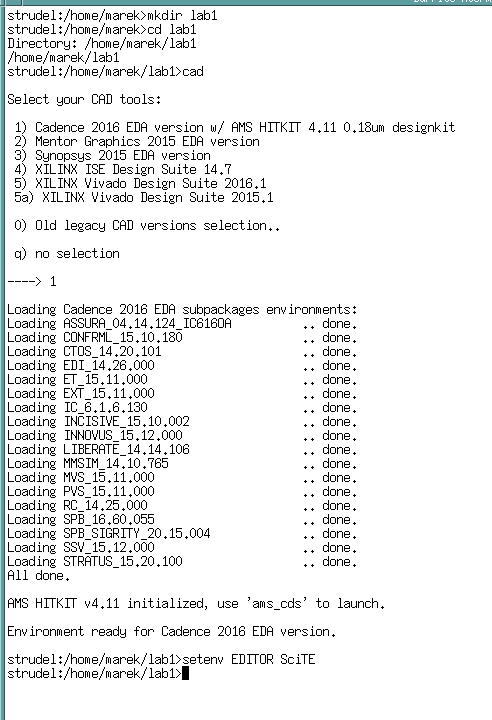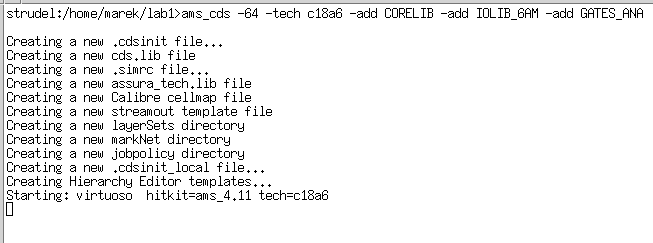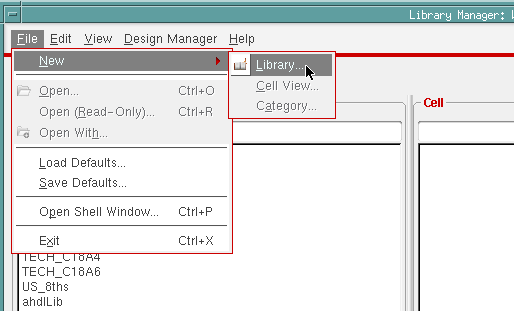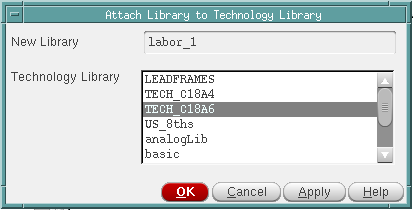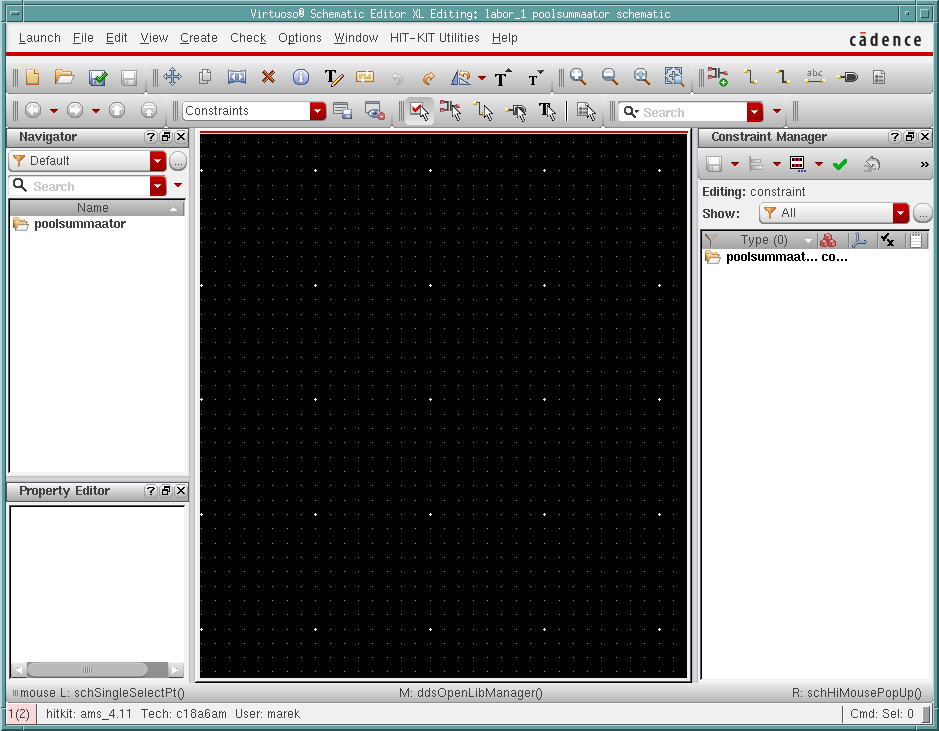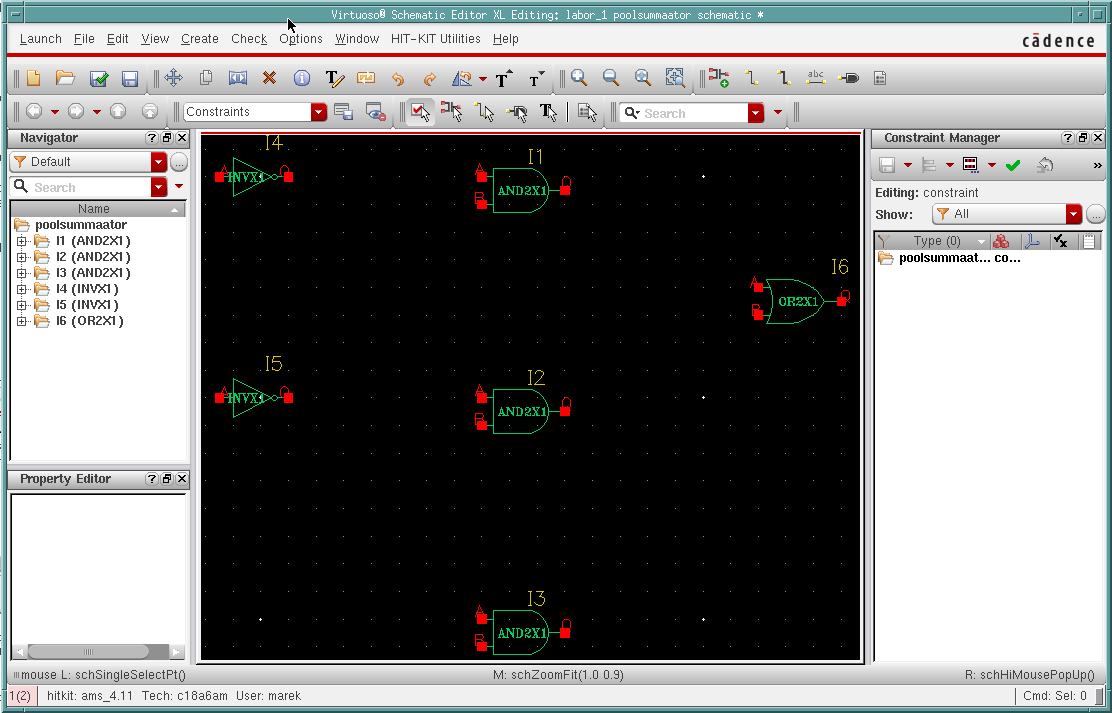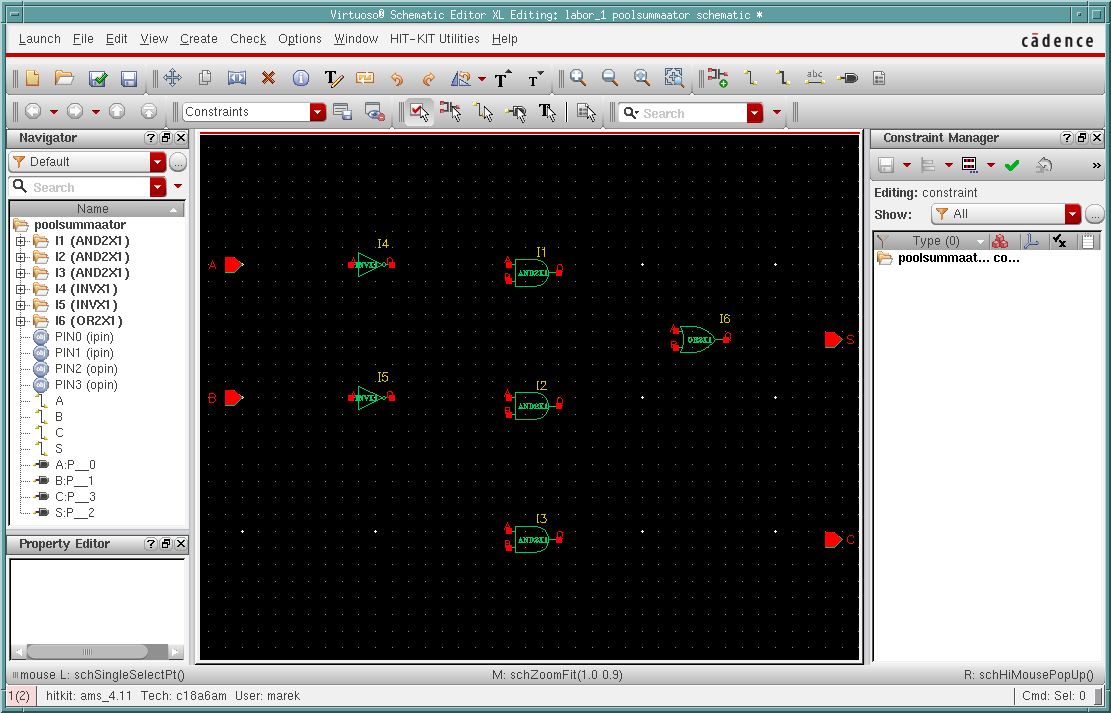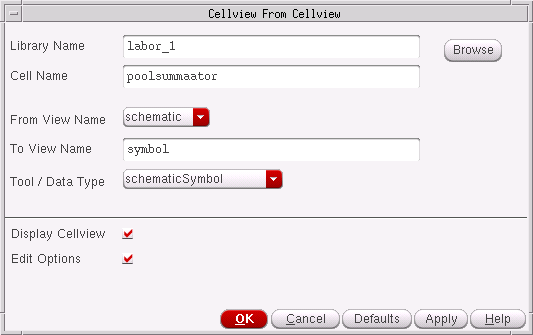CDS LAB1/en
From ATI public wiki
The objective of the tutorial is to design a digital circuit and simulate it using Cadence
Contents
Setting up the work environment
All the actions in this and the followin paragprah will be happening in terminal
- create a new directory lab1
- move to the new directory
- insert 'cad' and from the menu choose '1' (initializes environmental variables for Cadence)
- insert setenv EDITOR SciTE for making SciTE as the default text editor
Starting Cadence
- According to Cadence 2016 EDA ver.
- If it is the first time launching Cadence, then using terminal:
-
ams_cds -64 -tech c18a6 -add CORELIB -add IOLIB_6AM -add GATES_ANA
- here we choose AMS 0.18μm with 6 metal layers as the technology and add three gate libraries
- For the subsequent launches of Cadence use the command:
-
ams_cds
- The actions from this point on will be executed using the Graphical User Interface of Cadence
- Cadence main window will be also opening, which is located by default near the left bottom corner.
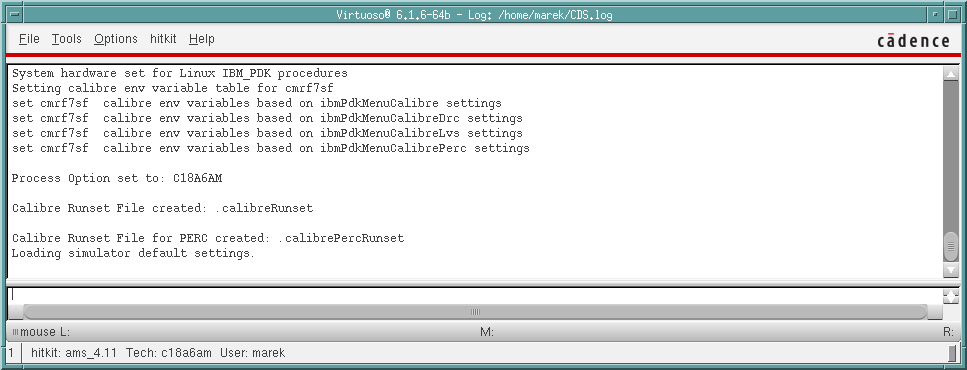
- Cadence will log messages in this window, including error messages.
- Also Cadence Library Manager window will open
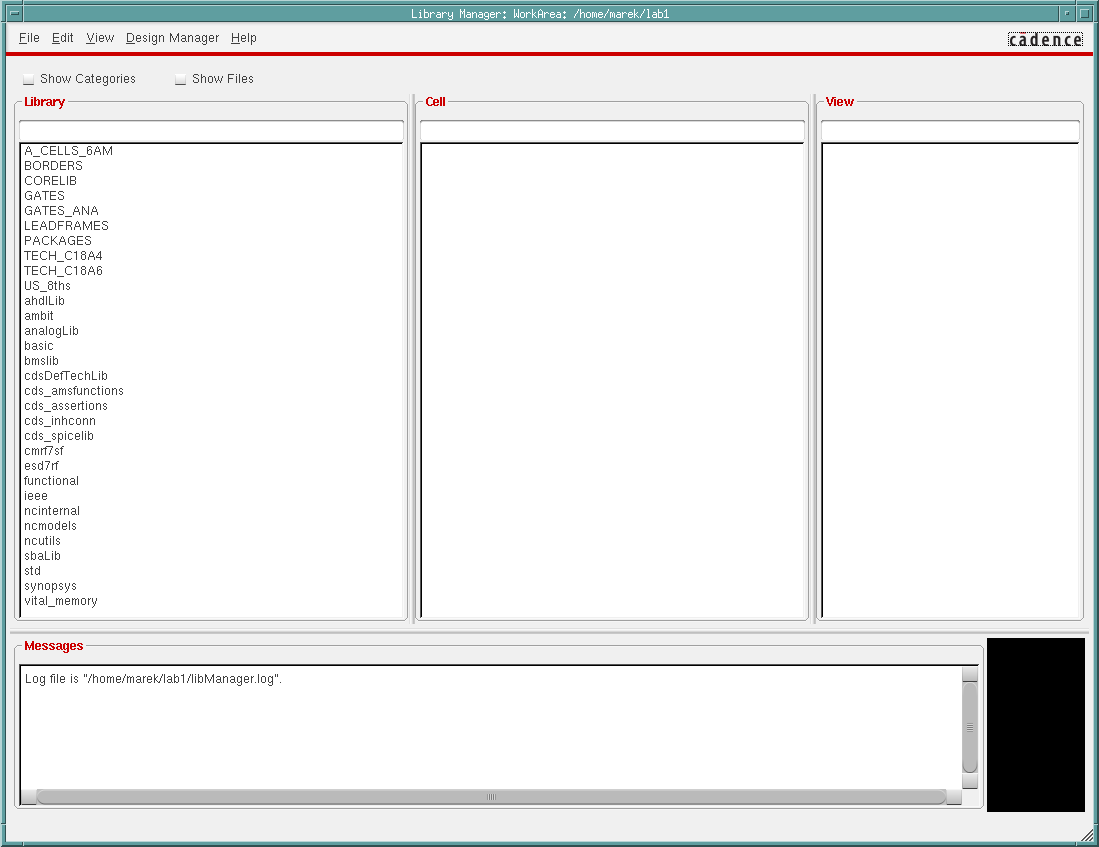
- It is recommended to check the checkbox Show Categories
Creating a new library
- A new window will open, where a name can be inserted. In here labor_1 will be used. After inserting the name, press OK
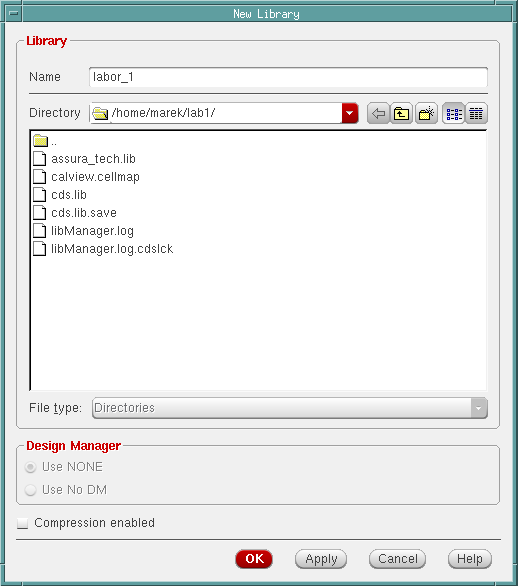
- Another window will appear with couple of choices. Choose Attach to an existing technology library and press OK
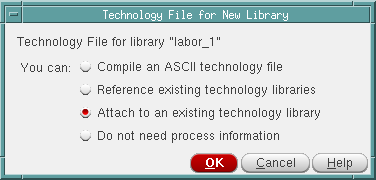
Creating new circuit into our library
- Choose the newly created library labor_1 in the Library Manager window. In the menu choose File->New->Cell View
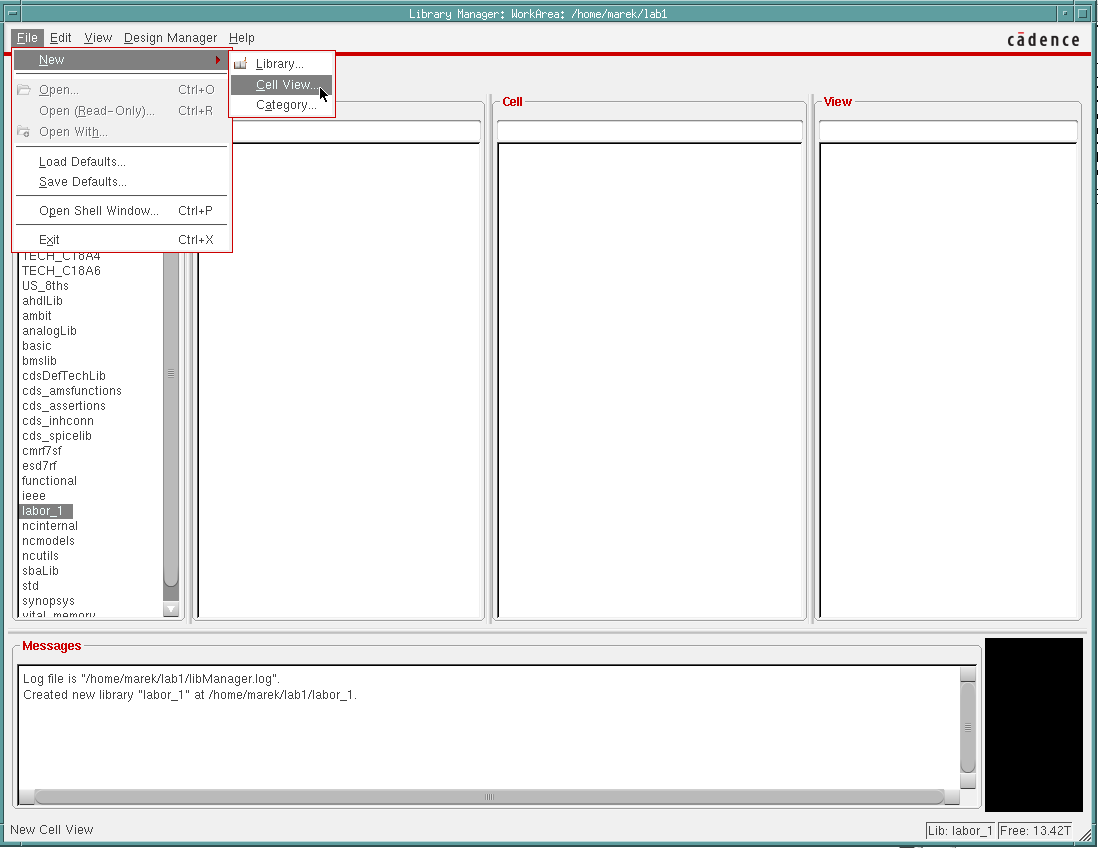
- In the window opened fill the field Cell by giving your new circuit a name, e.g. half_adder. On the images below poolsummaator is used as the name.
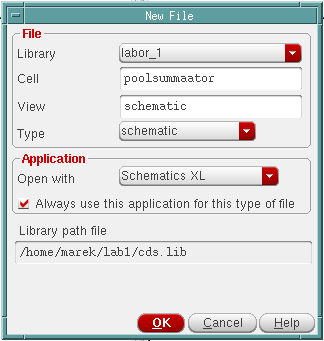
- Choose Applications->Schematics XL and select checkbox Always use this application for this type of file and press OK. As a result the schematic editor window will open.
Editing the half-adder schematic
- Overview of some of the schematic shortcuts
- 'i' - instance , adding new instance of a cell to the schematic
- 'w' - wire , adding wire to the schematic for connecting elements
- 'l' - label , inserting a label on a connection
- 'p' - pin , creating a new input/output pin
- 'f' - fit to view , changes to zoom to fit the whole schematic to the view
- 'u' - undo , undo the last action
- 'X' - Check and Save' , checks the schematic and saves it
- Zooming in can be done by holding down the right mouse button and selecting an area. To leave the zoom quickly, press f
- From every insertion mode you can quickly exit by pressing ESC
- When in the wire mode, you can press s for snap functionality.
- NB! Undo works until last save. Changes made before the save can not be taken back.
Creating a sheet border and title
- Press the key i and in the opening window press Browse
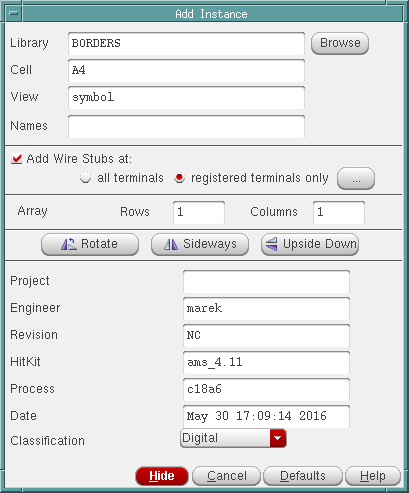
- Library Browser will open where you should navigate to Library->BORDERS->Cell->A5.
- We can close the Library Manager window by pressing Close
- Also we can hide the Add Instance window temporarily by pressing Hide
- After that the border can be placed by moving mouse in the black area of schematic editor and pressing left mouse button.
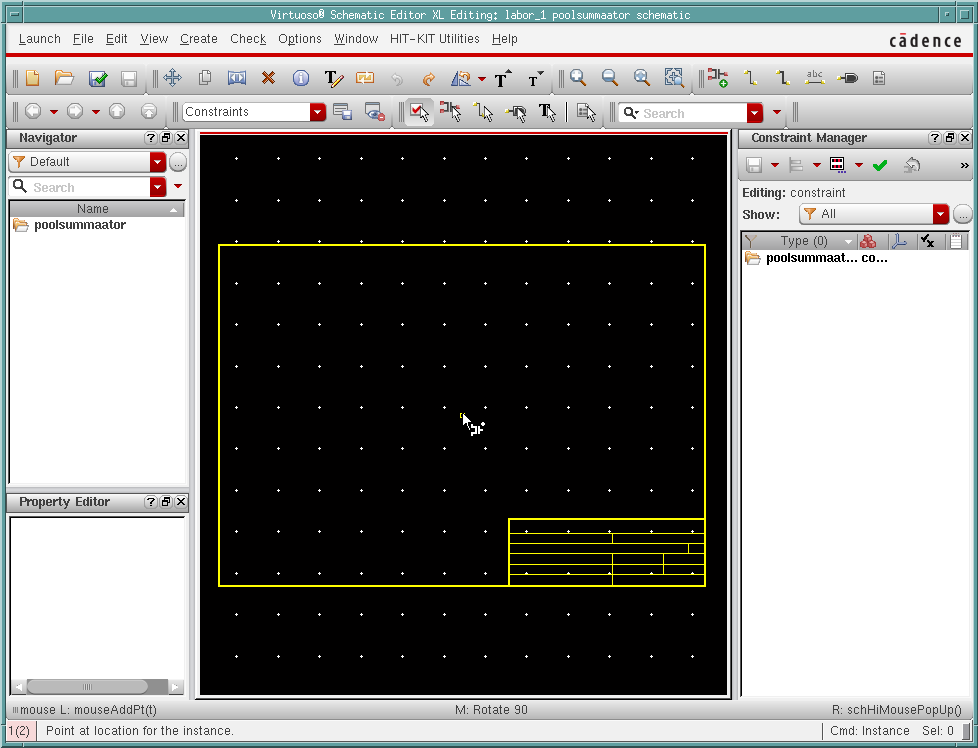
- When the border is placed, you can press f to fit the view.
Adding schematic elemenets of half-adder
- Press the key i and choose Browse
- In the Library Browser window that opened, navigate to Library->CORELIB where the schematic elements can be found.
- First of all we need to place some AND gates.
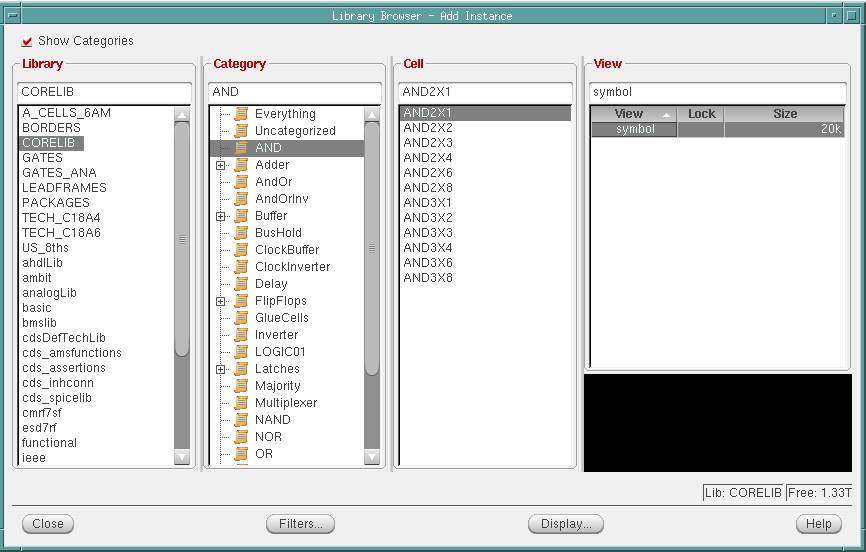
- To do that, navigate to Category->AND->Cell->AND2X1
- The numbers after the gate name show how many inputs does it have and its fan-out (number of gate inputs it can feed or connect to). In this case we have a two input AND gate with 1 fan-out.
Adding inputs and outputs for the half-adder
- To add the inputs and output pins, press p
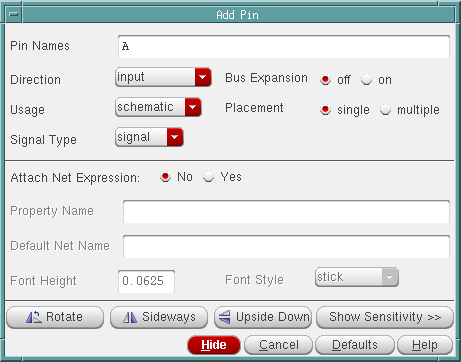
- For the first pin name choose A with direction input
- Placing pins works the same way as placing instances of cells
Adding connections
- Press w to choose wire and by using snap, connect the elements as following:
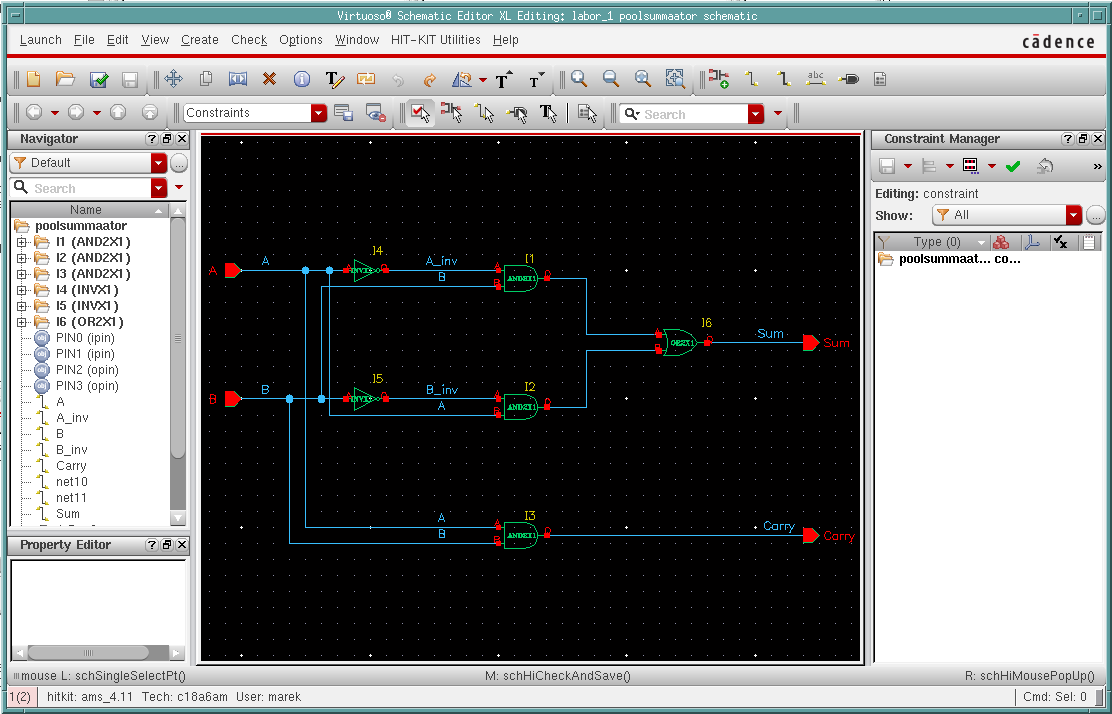
- For a better readability of the schematic you can add labels by pressing the key l.
Saving the half-adder schematic
- For saving the schematic press x

- In the Cadence main window you can check whether the saving was successful and if not, what were the errors.
Creating a symbol for the half-adder
- In order to use the newly created schematic as a component in other schematics, a symbol view must be created.
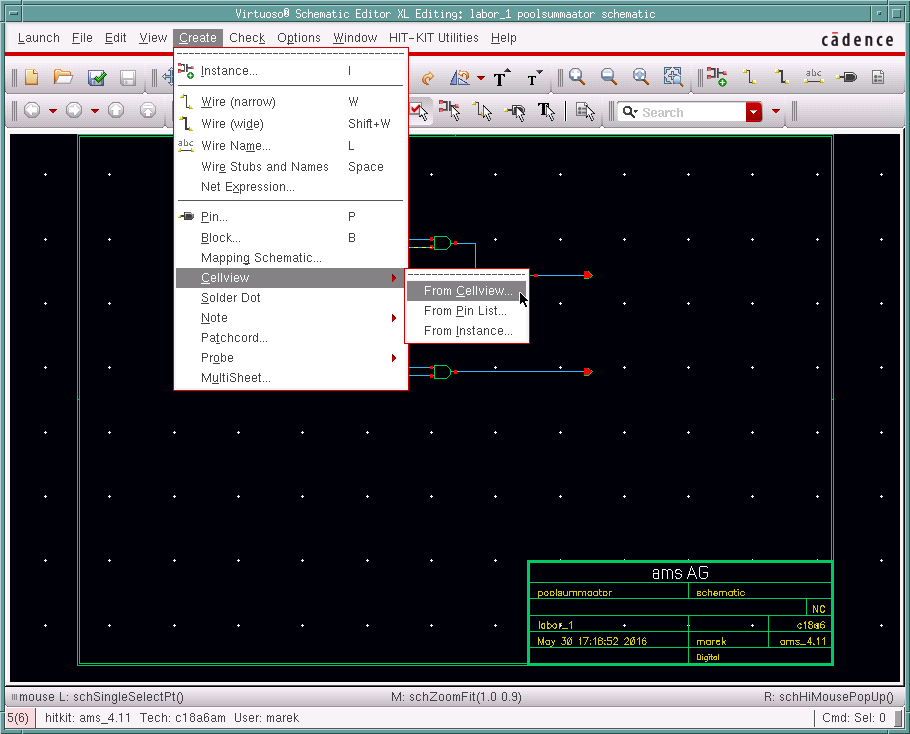
- To create a symbol, navigate from menu to Create->Cellview->From Cellview
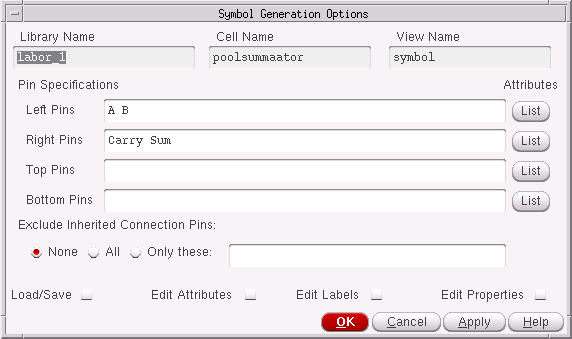
- In the following popup window you can choose the pin specifications.
- Finally continue by pressing OK
- Next, Cadence Symbol Editor will open
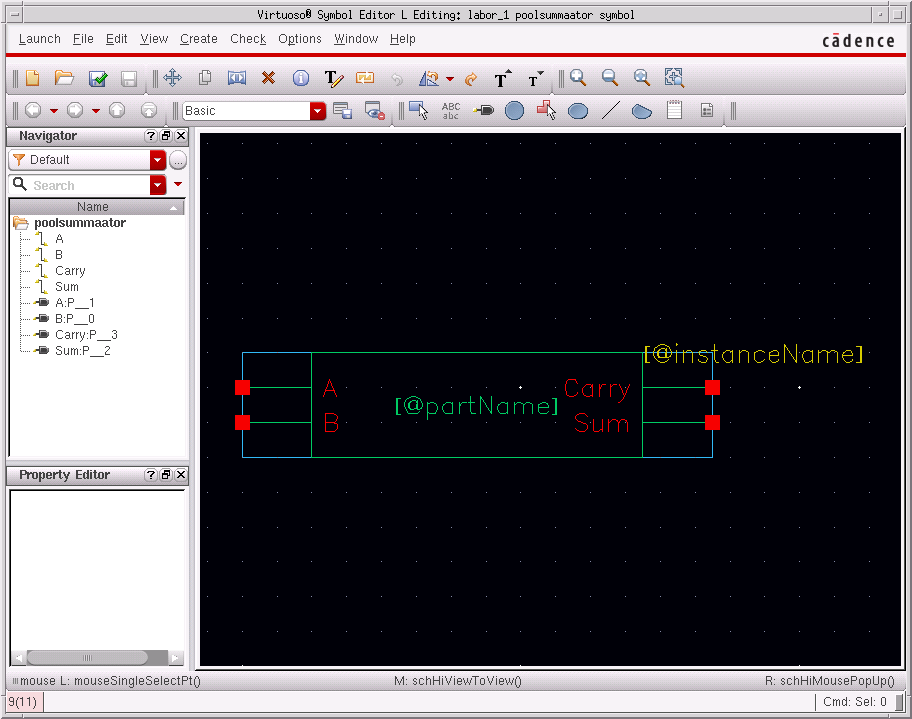
- The symbol created by default is a rectable. By using the toolbar, it can be designed as desired.
Full adder from two half-adders
- By using the finished half-adder component, we can create a full adder
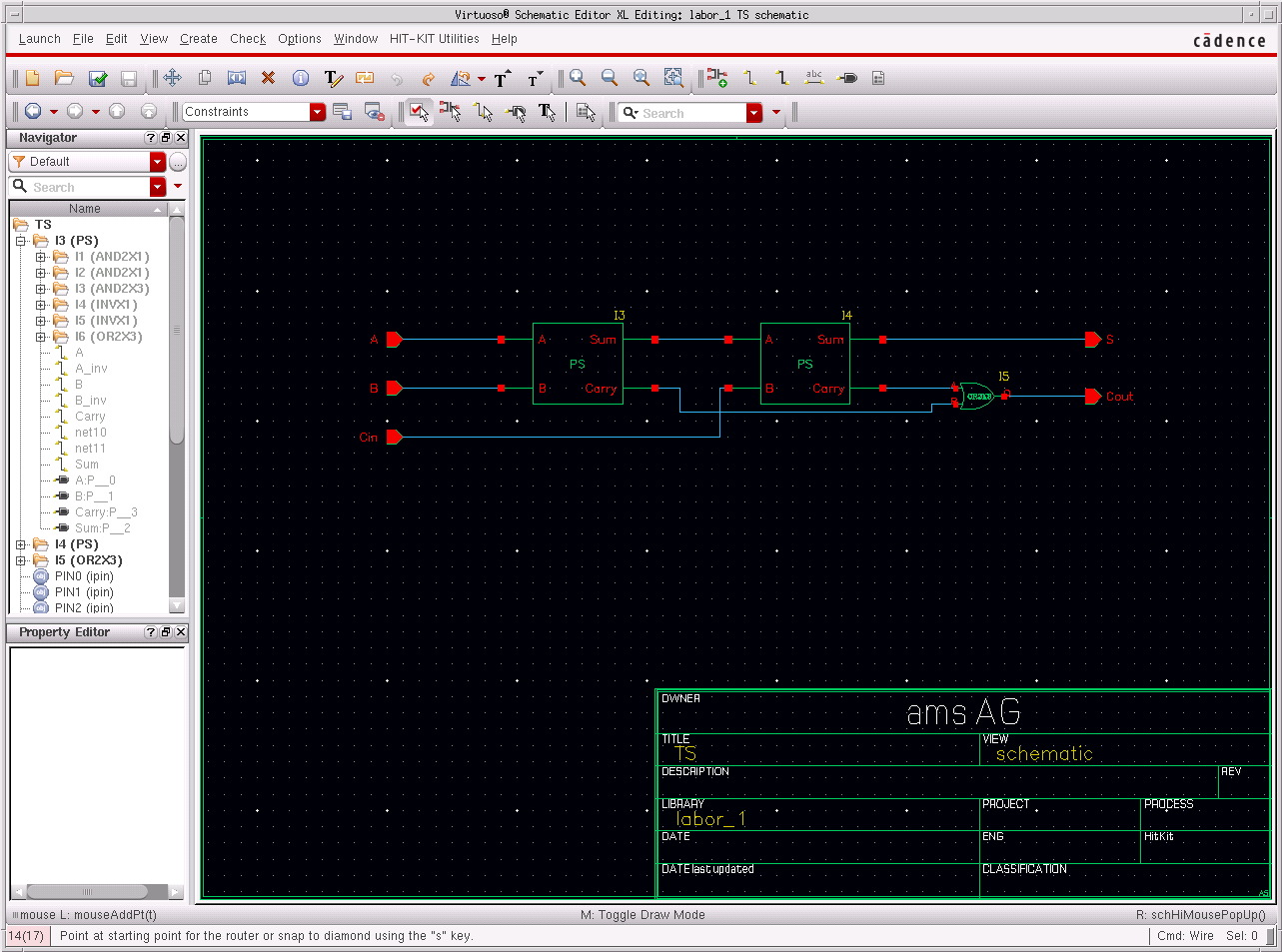
- This can be made into a symbol as well, so it can be used in other schematics as a component.
- The component can be also be opened in schematic view.
